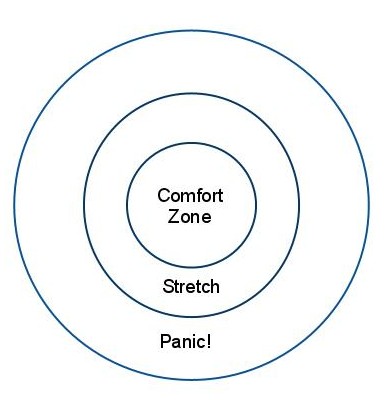Am I Uncoachable? Am I Unapproachable? 1
In this week’s Friday guest post coach Amber Fogarty shares her thoughts and experience with those who are uncoachable and unapproachable.
Am I Uncoachable? Am I Unapproachable?
by Amber Fogarty
Raise your hand if you’ve ever encountered someone who was uncoachable. How about someone who was unapproachable? Surely, you’ve encountered both types of people in your coaching business and in your community. Being both uncoachable and unapproachable is one of the worst combinations.
Take a moment to think about yourself and your interactions during the last month. Can you think of times when you’ve come across as either uncoachable or unapproachable or both?
Many blogs posted on this site have highlighted the importance of coaches having coaches. I strongly believe that one cannot be an effective coach without a coach of his or her own. One of my mentors in the coaching industry, who has been a coach for more than 25 years, once told me that “a coach without a coach is a con artist.” Strong words, but words I believe to be true. How can we sell the value of coaching to others if we don’t have a coach ourselves? We must be a “product of the product.”
But what makes someone uncoachable? There are so many factors that can contribute to “uncoachability.” Here are a few of my favorites, worded as I statements so that you can challenge yourself to think about whether or not each one applies to you.
- I am uncoachable because I do not want to change.
- I am uncoachable because I do not believe that I need to change.
- I am uncoachable because I believe I know more than the coach. (Knowing is the enemy of learning.)
- I am uncoachable because I think it’s not the right time to (fill in your excuse here).
- I am uncoachable because I think something or someone else needs to change before I do.
- I am uncoachable because I need to be in control 100% of the time.
- I am uncoachable because I do not like to be challenged.
- I am uncoachable because I am not open to feedback.
Bearing all this in mind, are you uncoachable? A very wise coach once told me that being coached is about being open to all possibilities. It is about being challenged to be a better version of yourself.
How can you strive to be more coachable? To be more open to feedback? To embrace change?
I recently was introduced to a networking expert by one of my coaching clients. I reached out to this new contact so that we could get to know each other and see if there were any opportunities for us to help each other. Her response to my request for a meeting indicated that she was really busy and was “only meeting with people who could directly impact her cash flow.” How could a networking expert be so unapproachable?
As coaches, we may at times believe that we have all the answers. We may be tempted to fall into the trap of believing that we don’t have anything to learn from a particular person or about our area of expertise. Knowing truly is the enemy of learning, and we always have more to learn. So let’s make a commitment to being approachable and coachable. Our families, our friends, and our clients deserve it.
About the Author/Further Resources
Amber Fogarty is a Partner and Coach with the SOS Coaching Network, which unites an elite group of coaches, trainers, and consultants from around the world, providing them with personalized programs, one-on-one and group coaching, and tools to help them succeed in the rapidly growing coaching industry. Learn more at www.soscoachingnetwork.com.
